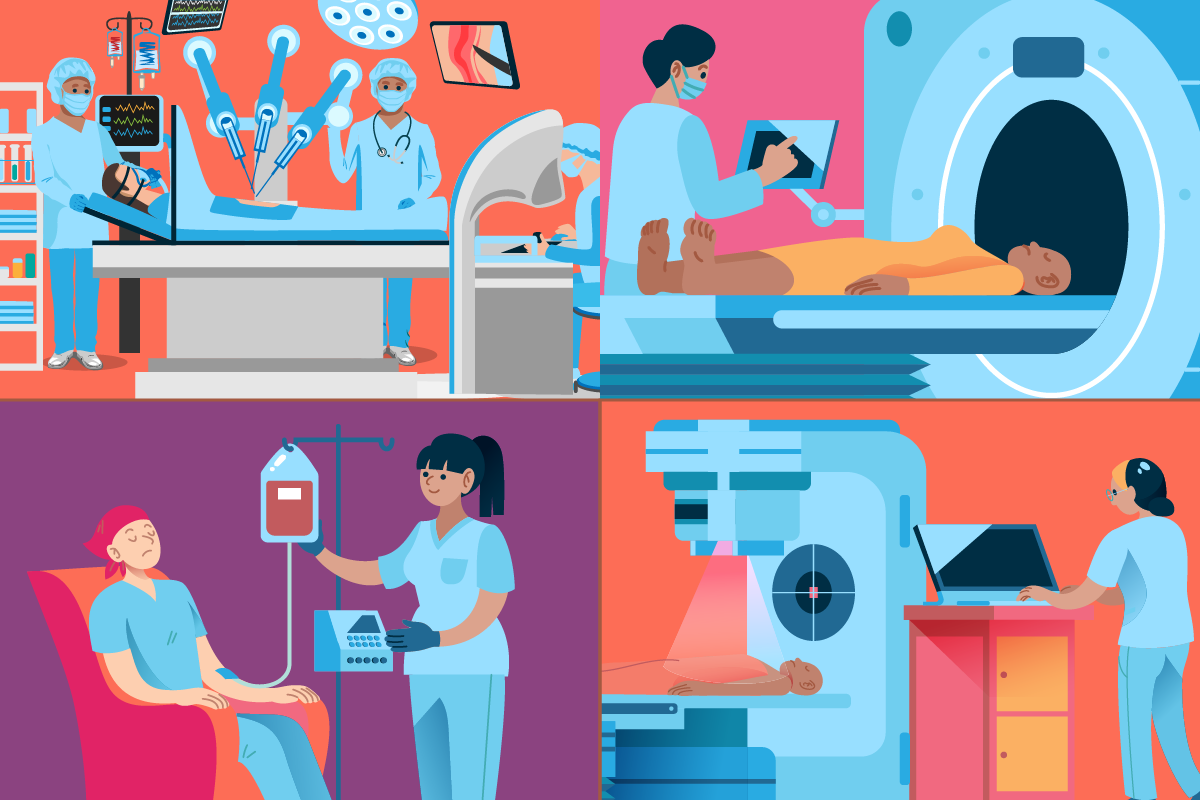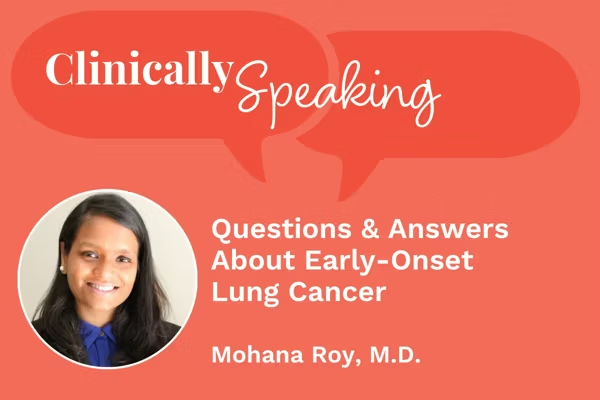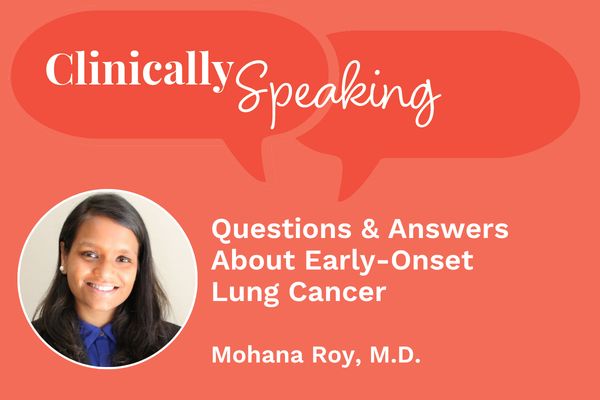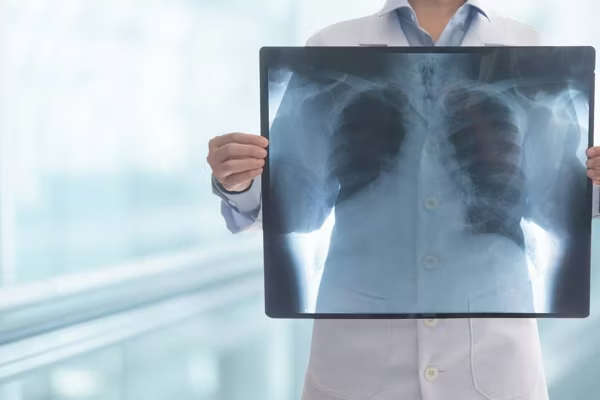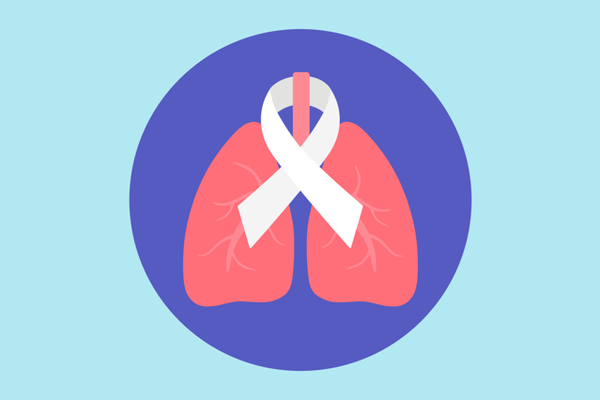What happens after you or a loved one receives a lung cancer diagnosis?
Receiving a lung cancer diagnosis can be overwhelming and traumatic for patients and their families. So, the first step is to take some time to process the news. Then, it’s time to make some decisions.
It’s understandable to feel a sense of urgency after getting a cancer diagnosis, but there is usually time to consider all treatment options and perhaps even get a second opinion before deciding on a treatment plan, said Pragnan Kancharla, M.D., a medical oncologist at MedStar Health. “Learning as much as we can about each case before starting treatment is important,” he said. “That said, some lung cancers are very aggressive. When we diagnose a patient with small cell lung cancer, we must start treatment immediately because it’s so aggressive. Otherwise, patients can and should take time.”
Soon after diagnosis, your healthcare provider (HCP) will order tests to see if the cancer has spread throughout your lungs or to your lymph nodes and other parts of the body.
These tests may include:
- Computed tomography (CT)
- Magnetic resonance imaging (MRI)
- Positron emission tomography (PET)
- Bone scans
This process is called staging. Knowing the type and stage of your lung cancer is important for treatment.
Meet your cancer care team
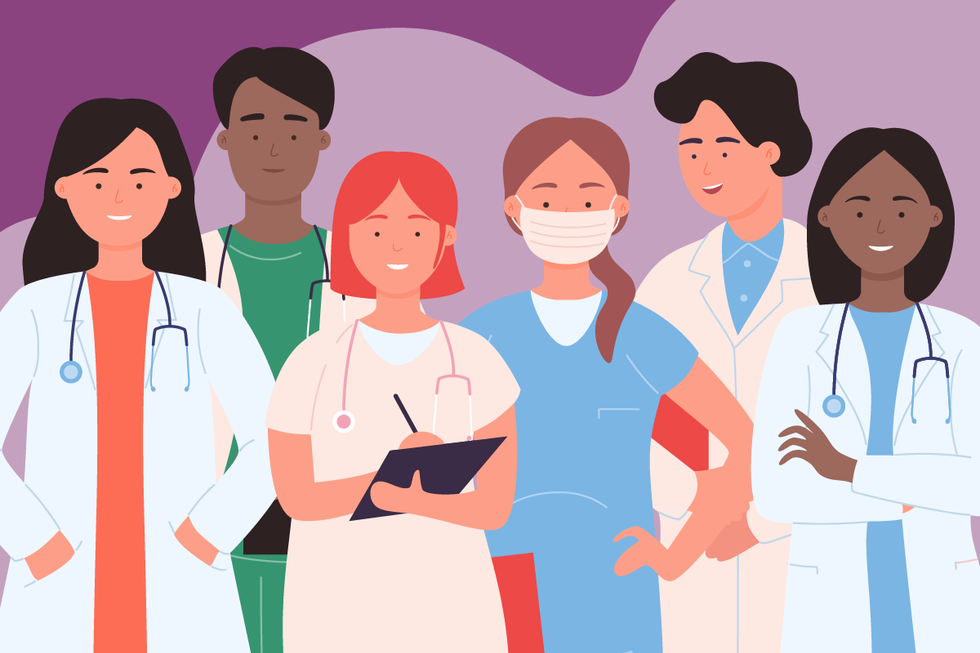
After staging, a dedicated care team will study your case and start treatment planning. Your team will consist of several specialists.
Team members who will care for you during your cancer treatment may vary depending on your exact diagnosis, but can include:
- Medical oncologist: Uses medicines to treat cancer including chemotherapy, immunotherapy and targeted therapy
- Thoracic surgeon: Treats diseases of the chest and lungs
- Radiation oncologist: Uses radiation therapy to treat cancer
- Pulmonologist: Treats diseases of the lungs
- Other HCPs: Includes nurses, pharmacists, respiratory therapists and social workers who will help you manage your cancer treatment and any other health conditions you may have
Keep in mind that, in addition to your cancer care team, you will still need to see your primary care provider during cancer treatment to stay on top of any other medical conditions and your general health.
Lung cancer treatment options
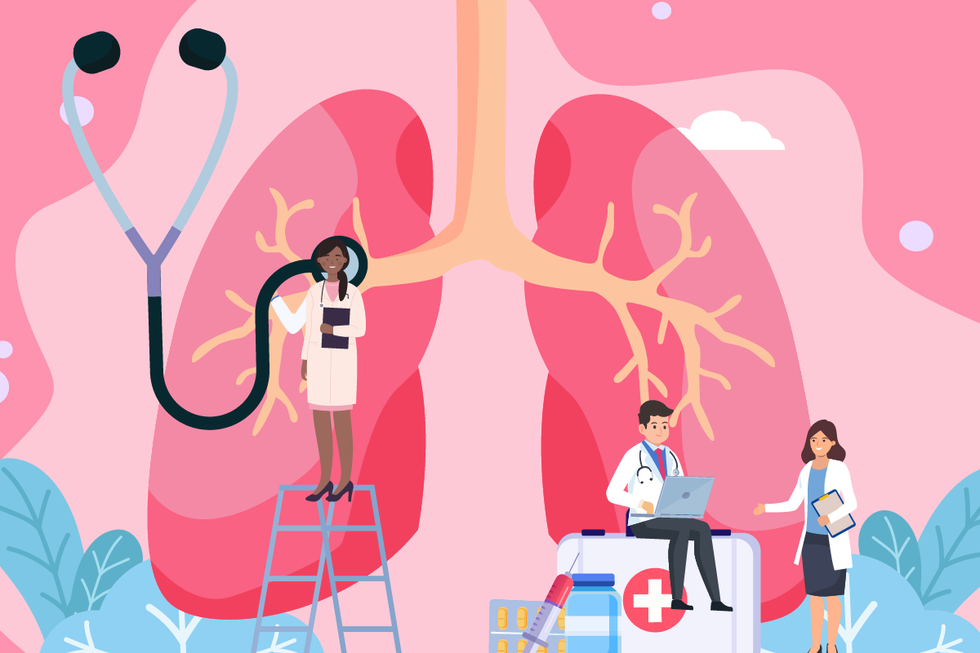
Your specific treatment plan will be based on what type of lung cancer you have and how far it has spread. People with small cell lung cancer (SCLC) usually receive a combination of chemotherapy and radiation therapy.
People who have non-small cell lung cancer (NSCLC), the most common kind, will receive some combination of surgery, radiation therapy, chemotherapy, immunotherapy or targeted therapy.
Surgery for lung cancer
If your lung cancer is in the early stages, your care team might recommend surgery. Surgery that completely removes the tumor may even cure the disease. But the surgery is complex, and your heart must be healthy enough to have the procedure.
Surgeons perform several types of operations to treat lung cancer. The recommendation is based on the tumor’s size and location and how well your lungs work.
The amount of tissue your surgeon will remove can vary from just the tumor and surrounding tissue to the entire lung.
Radiation therapy for lung cancer
With radiation therapy, high-energy rays or particles are used to kill cancer cells. HCPs often use external beam radiation therapy, where machines outside the body deliver radiation through the skin to the tumor.
With lung cancer, HCPs also sometimes use internal radiation therapy, called brachytherapy. This is when radioactive material is put into or near the tumor.
Radiation therapy can be used with many different stages and types of lung cancer. For example:
- Your team may recommend radiation before surgery to shrink the tumor or after surgery to kill any remaining cancer cells.
- You may receive radiation as your main treatment if surgery is not an option because of the location of the tumor or your overall health.
- Radiation can also treat areas where your lung cancer may spread, including the brain and bones.
Chemotherapy for lung cancer
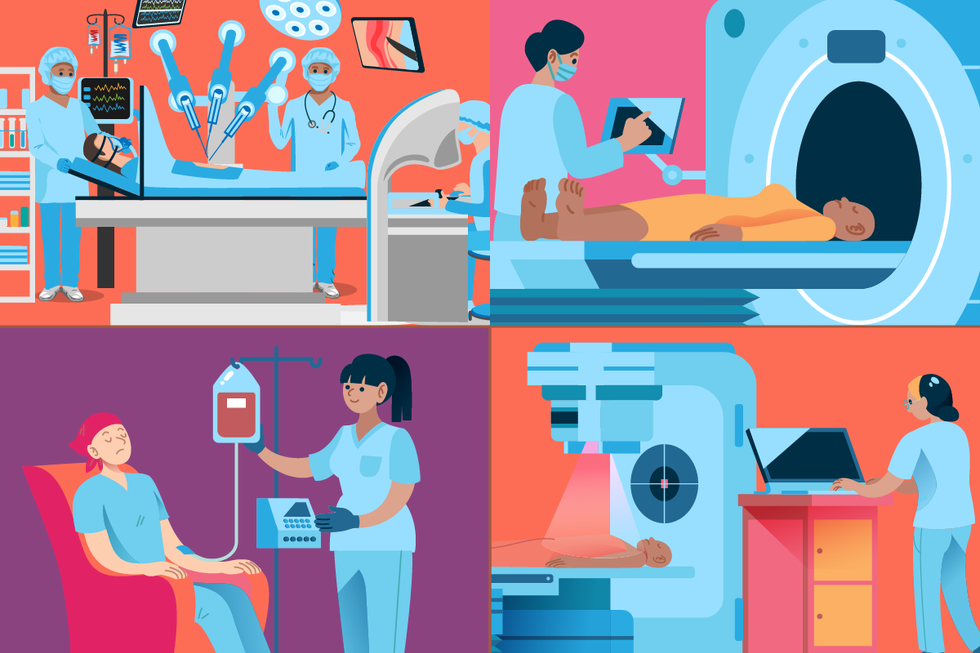
With chemotherapy, your medical oncologist will prescribe medications that directly kill cancer cells. You will most likely receive chemo through a vein (IV) or a port inserted in your chest.
As with radiation therapy, chemo is used for many stages and types of lung cancer. Common scenarios include:
- Chemo may be the first treatment you receive (neoadjuvant chemo) to try to shrink the tumor before surgery.
- You may receive chemo after surgery (adjuvant chemo) in case any cancer cells remain.
- If surgery is not an option, chemo may be the main therapy used in locally advanced disease.
- Chemo may be used in advanced lung cancer that has spread outside the lungs to treat those tumor sites.
Immunotherapy for lung cancer
Unlike chemotherapy, immunotherapy drugs “train” your immune system to recognize and attack cancer cells. The checkpoint proteins normally prevent your immune system from harming your body’s normal cells. A group of drugs known as immune checkpoint inhibitors act like switches to turn on your immune system.
Doctors use two main types of checkpoint inhibitor drugs to treat lung cancer:
- PD-1/PD-L1 inhibitors: These drugs target the PD-1 protein on your body’s T cells that prevent your immune system from attacking itself. When the drugs block PD-1, they increase your immune response against cancer cells. Before you start any of these drugs, your doctor will request a blood test to see how much PD-L1 protein your tumor cells have.
- CTLA-4 inhibitors: Like PD-1/PD-L1 inhibitors, these drugs boost your immune response. But they do it by blocking a different protein than PD-1 inhibitors do. CTLA-4 is another protein on T cells that controls whether your immune system attacks itself. CTLA-4 inhibitors are most commonly used with a PD-1 inhibitor. In advanced lung cancer, CTLA-4 inhibitors may be used with chemo as well.
Targeted therapy for lung cancer
In recent years, scientists have discovered that specific genetic mutations, or errors in genes, cause lung cancer. If your tumor contains one of these mutations, your doctor may recommend a therapy that targets that mutation.
“Targeted therapy looks at what the mutation is and tries to block or counterattack the mutation directly, not allowing cancer cells to multiply,” Kancharla said.
If your tumor does not contain that specific mutation, targeted therapies won’t work for you. That’s why it’s important for your HCP to order molecular testing on your blood or tumor cells before you start any treatment.
Targeted therapies are currently used most often in advanced lung cancers. Sometimes they are combined with chemotherapy. In other cases, they may be given as a sole treatment.
Some of the most common mutations occur in these genes: EGFR, ALK and KRAS.
Clinical trials for lung cancer
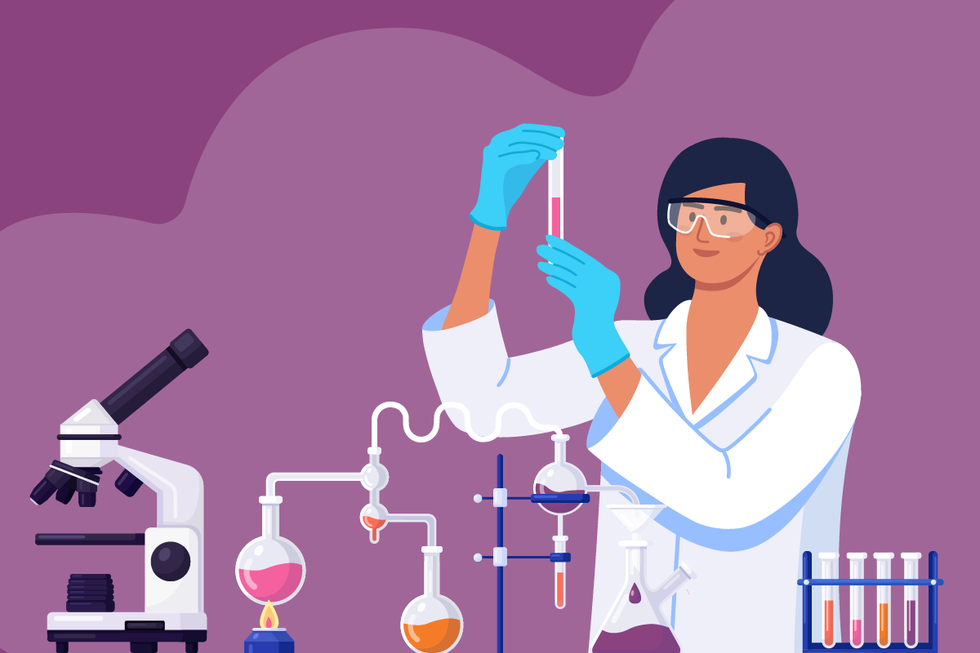
Lung cancer has seen dramatic increases in patient survival rates. That progress has happened in part because thousands of patients have participated in clinical trials that explore new drugs and types of cancer treatments. Clinical trials are an option for people with lung cancer that isn’t responding to treatments.
“Clinical trials have made all the difference in how successful we are in treating lung cancer,” Kancharla said. “We are happy to explain the potential risks and benefits of any clinical trial, and we appreciate that so many patients are willing to participate in research.”
If you’re interested in learning whether there’s a clinical trial that might work for your specific case, ask your HCP or visit the American Lung Association’s clinical trial finder.
This educational resource was created with support from Merck and Novocure.
- Lung Cancer ›
- Ask the Expert: Lung Cancer - Risk Factors and Interventions ›
- Surviving Lung Cancer Helped Me Embrace the Connection Between Body and Mind ›
- Early Screening for Lung Cancer Can Be a Lifesaver ›
- Understanding the Different Types of Lung Cancer ›
- Lung Cancer 101 ›
- Why Is Lung Cancer Research Underfunded? - HealthyWomen ›
- ¿Por qué la investigación contra el cáncer pulmonar no tiene suficiente financiamiento? - HealthyWomen ›
- Symptoms of Lung Cancer - HealthyWomen ›
- Los síntomas de cáncer pulmonar - HealthyWomen ›

